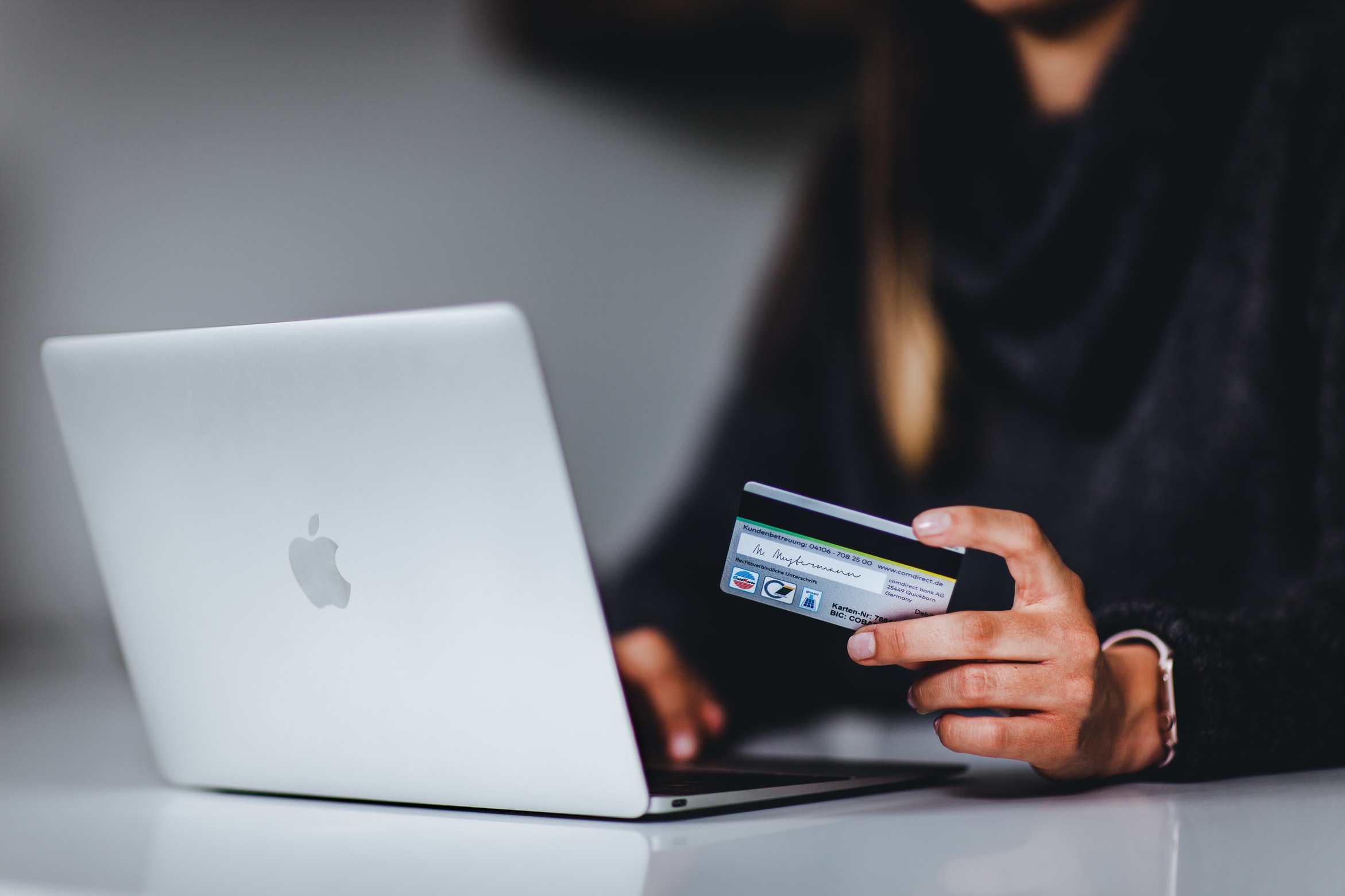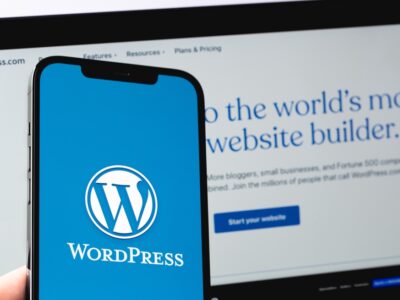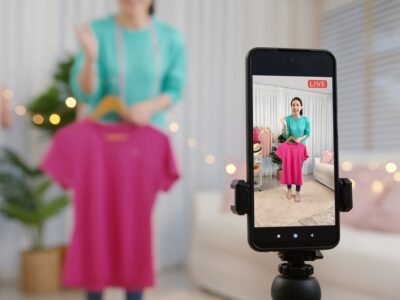Visuals are, arguably, the most valuable digital asset a brand can have in its arsenal. At least if it wants to convert website visitors into paying customers.
Yet how many times have you seen multiple brands operating in the same niche go for the lowest hanging fruit when it comes to visuals? You know what we mean – the same old Unsplash photos that are used on every other blog post and that consumers are likely to have seen at least a dozen times throughout their buyer’s journey.
Sure, great (free) images can be hard to come by. But the thing is, they’re just as worth investing in as outstanding web design. Especially as they are a great way to successfully communicate your brand’s unique value proposition and appeal to audiences (who are much more likely to consume aesthetically pleasing content than to read plain-old text).
So, if you’re struggling to find the best website visuals that will help you convert your visitors into customers, these are the eight options you should consider including on your site.
1. The Large Header Image

Source: onzie.com
One of the most valuable spaces on your homepage is the header section.
And that’s not just because it’s guaranteed to receive more attention than the content you place below the fold. (Yes, research shows that web visitors spend 57% of their page-viewing time above the fold).
But also because it allows ample space for large visuals that grab and hold onto web visitor attention. (A fascinating test conducted by VWO showed that larger product images increased revenue by 9.6%.)
So, knowing that your header image is bound to contribute to conversion rates, do your best to choose one that’s absolutely stunning.
The example below from Onzie shows just how simple your header image can be. As long as it’s displayed in high res, is successful at communicating your message with your web visitors, shows your products off in a positive light, and captures your brand’s personality (ideally with a catchy heading), you’re good to go.
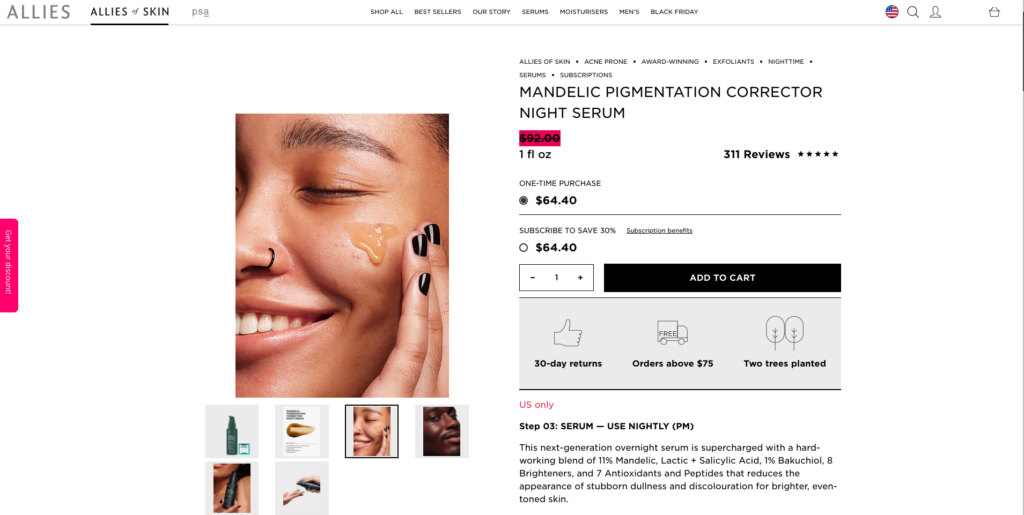
Source: onzie.com
2. The Emotional Photo
Do you prefer to base your web design choices on psychology and consumer behavior? In that case, it might not be a bad idea to choose visuals that elicit emotional reactions from your web visitors.
For example, a 2018 study revealed that emotionally loaded images (photos of smiling faces, cute puppies, etc.) weren’t just successful at positively impacting consumption. Crucially, they were also more effective at doing so than words.
So, if you check out this product page from Allies of Skin, you’ll see that the brand’s choice of imagery, which shows happy people using the advertised products, is a brilliant decision. For one, because the visuals inspire a positive association with the brand. And secondly, because they’re more likely to drive conversions than a generic product photo.
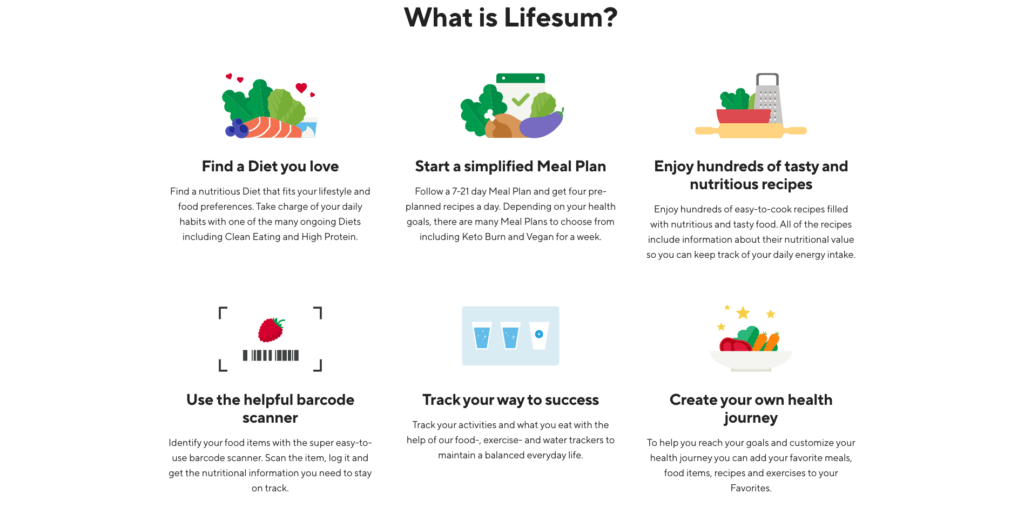
Source: us.allies.shop
3. The Illustration
What’s the best way to use visuals when trying to sell high-tech products to a large target audience? It’s safe to assume that SaaS solutions and tech gear require some mental gymnastics before you find the absolute best way to describe them (without having to revert to jargon or highly-specific language).
In these cases, illustrations could be the answer for you.
These visuals are an excellent alternative to both photos and text, seeing how they make it almost easy to explain complicated concepts. Plus, they can help you describe multiple benefits without overwhelming web visitors with too many photos or making your site text-heavy.
For an excellent example of how you can use illustrations to drive conversions on your site, check out the Lifesum homepage.
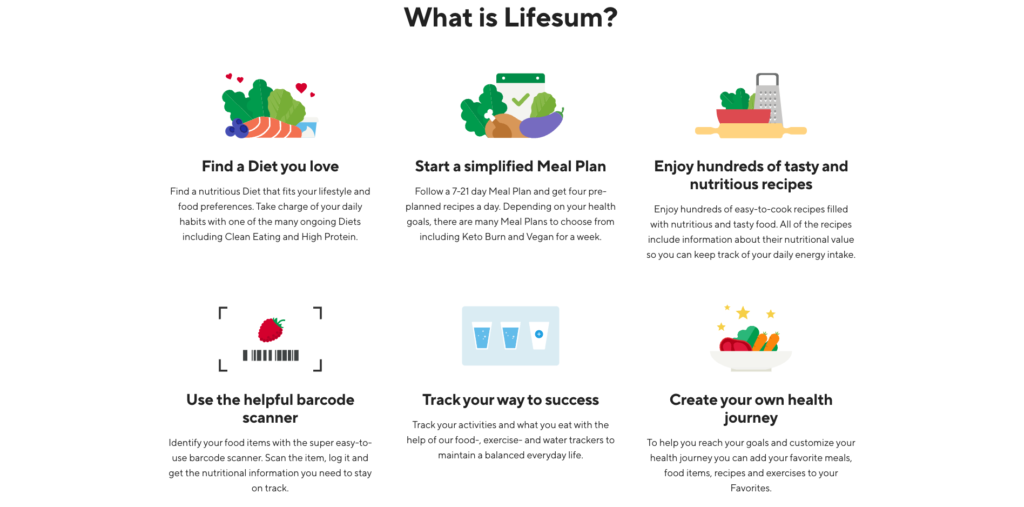
Source: lifesum.com
Instead of relying on in-app screenshots (which are also a good choice for some brands), this site explains the app’s benefits by describing features with easy-to-process visuals.
Then, it takes a step further by showing off its (illustrated) mascot in several different situations, aiming to help web visitors recognize their pain points and encourage them to give Lifesum’s solution a try.

Source: lifesum.com
4. The Preview
There are two ways to ensure the longevity of your business: a) inspiring first-time web visitors to convert; or b) getting existing clients to repeat their purchases.
Whichever of the two goals you’re focusing on at the moment, you’ll find that the key to doing so successfully is to successfully manage customer expectations. One excellent strategy to do so is to stick to the old “underpromise and overdeliver” method. But, it’s also possible to use visuals to improve the way you describe your offer and its benefits to your target audience.
In-app screenshots, like the ones on Scott’s Cheap Flights, are an excellent tool for showing off the way your products work.
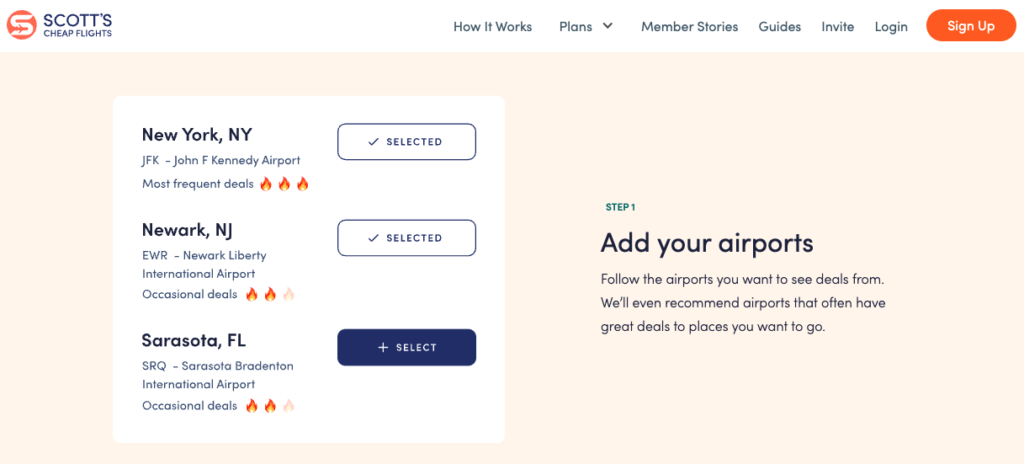
Source: scottscheapflights.com
These types of preview visuals can give web visitors a taste of what they’ll be receiving with their purchase/subscription and can prevent disappointments by making your product descriptions extremely precise.
But, if you want to make things really exciting, you could also try enhancing your previews with illustrations. These will add a dose of relatability to your product, doing an even better job of convincing web visitors that your products are the right choice for their needs. For a great example, check out the app previews used on the Discord homepage.
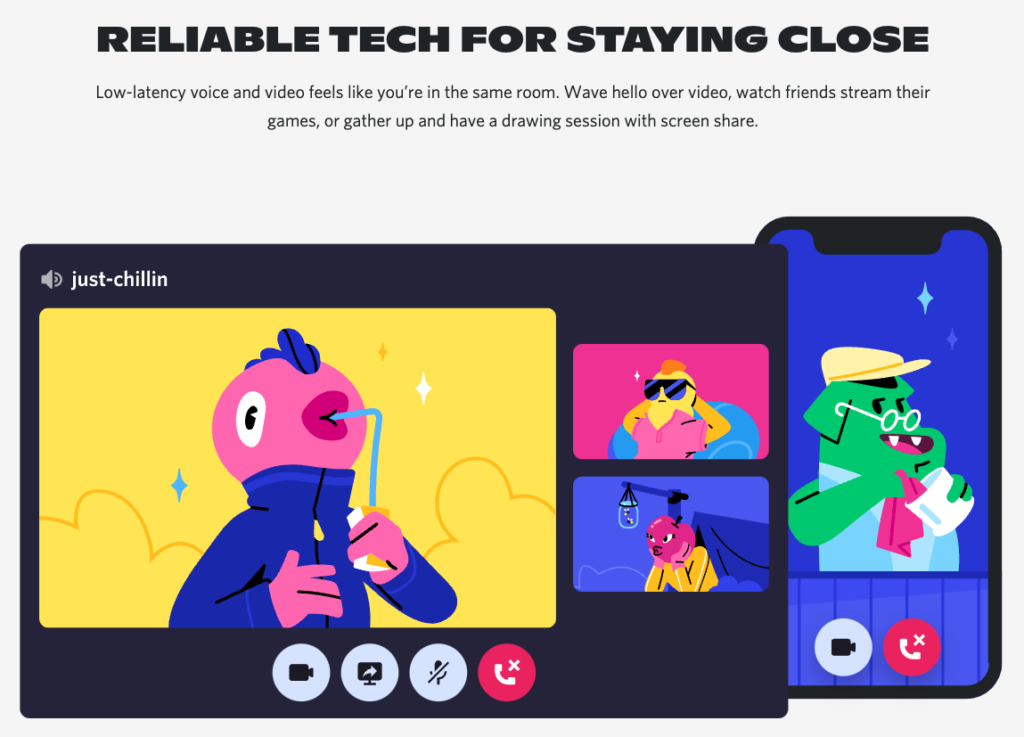
Source: discord.com
5. The Video
None of these web visuals sound effective enough to deliver the conversion rates you’re after? Well, why not try adding some videos to your site?
Videos are not only engaging and capable of effectively communicating information, but they’re also one of people’s preferred formats for content consumption.
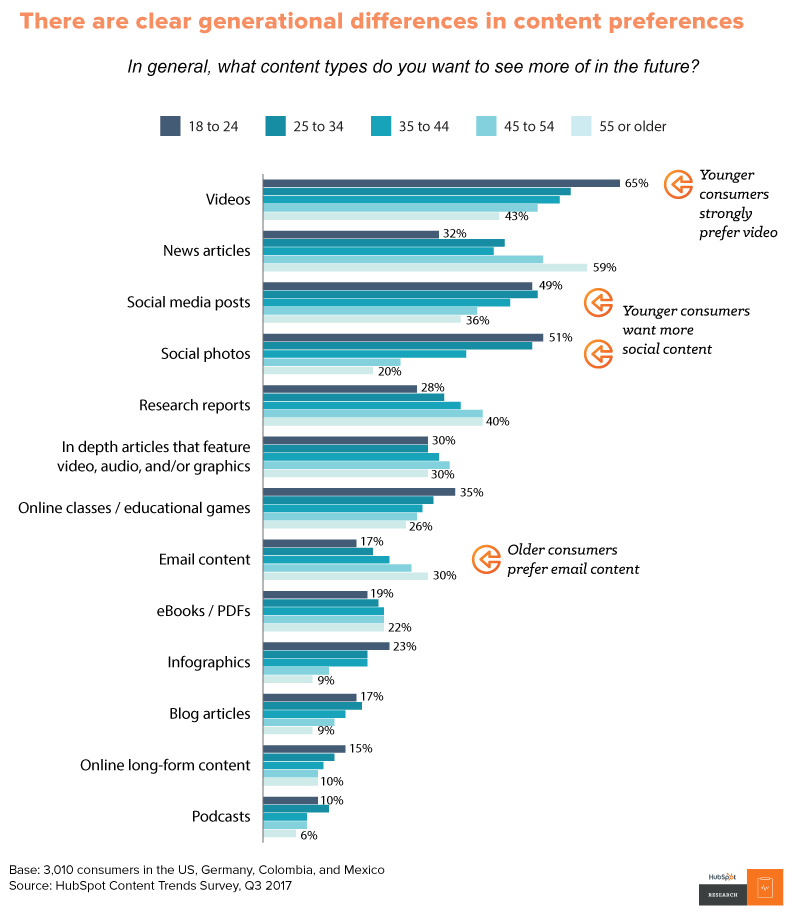
Source: hubspot.com
Plus, if videos can help capture leads and boost sales, then it’s definitely worth adding some to your website. As an example, take a look at how GILI Sports makes use of video communicate its core values.
The video used on GILI’s homepage also helps the brand build an emotional bond with its web visitors, connecting with watersports enthusiasts over the wish to save the world’s oceans, sea creatures, reefs, and endangered species.
6. The Better-Than-Average Product Photo
Ok, but what about the web pages that are directly related to your bottom line? Surely there must be a trick to convincing people to overcome their objections and convert into customers?
Well, while there may not be one single solution that works like magic to boost sales on your website, you can make sure to make your products as appealing as possible through product photography.
Several fascinating research studies have been conducted over the past couple of years:
- This 2018 research study ranked product photo elements based on impact. Textual information such as brand names and slogans turned out to be the most important.
- This 2020 research paper studied consumers’ perception of 360° photography, finding that shoppers thought such visuals to be informative.
- This article from 2018 looked at eye-tracking data. It found that simple photo compositions worked better than busy ones when attempting to elicit a positive reaction from consumers.
So, knowing that consumers appreciate insightful and focused product photography, it might not be a bad idea to invest in better visual representations of your merchandise.
Maybe you could take a page out of Saucony’s book and add some hands-on videos to your ecommerce website to better show off your products.
Or, if that doesn’t seem advanced enough, why not experiment with AR? Maybelline has an awesome Virtual Makeup Try-on page on its website that allows buyers to upload their photos and choose the absolute best makeup colors to match their skin tone and preferred look.
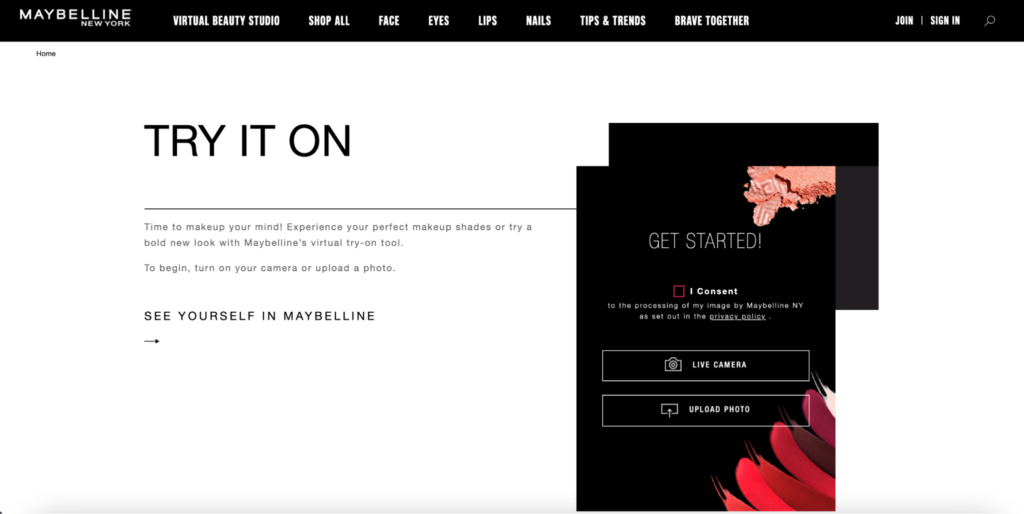
Source: maybelline.com
7. The User-Generated Content
When trying to convert more visitors into customers on your website, you will have to make social proof an integral part of your marketing strategy. After all, in its various forms, social proof acts to:
- Build your brand’s image as a trustworthy business.
- Verify your value propositions.
- Instill your target audience with a sense of security by showing that your brand is authentic and ready to deliver on its promises.
And, of course, it doesn’t just serve your business but also benefits your target audience.
So, as you’re looking for ways to boost conversions through investing in your brand’s authority, you could find that a great way to do so is through user-generated content. More precisely, through images that you source from your satisfied customers.
A recent survey showed that consumers loved seeing UGC for a variety of reasons.
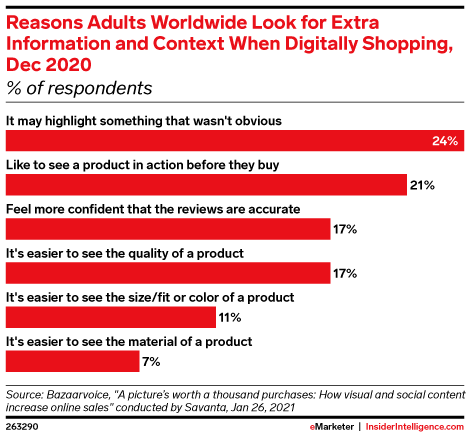
Source: emarketer.com
Considering this, you might want to find ways to add user-generated visuals to your site. Perhaps you can source images from Instagram, as Daniel Wellington does.
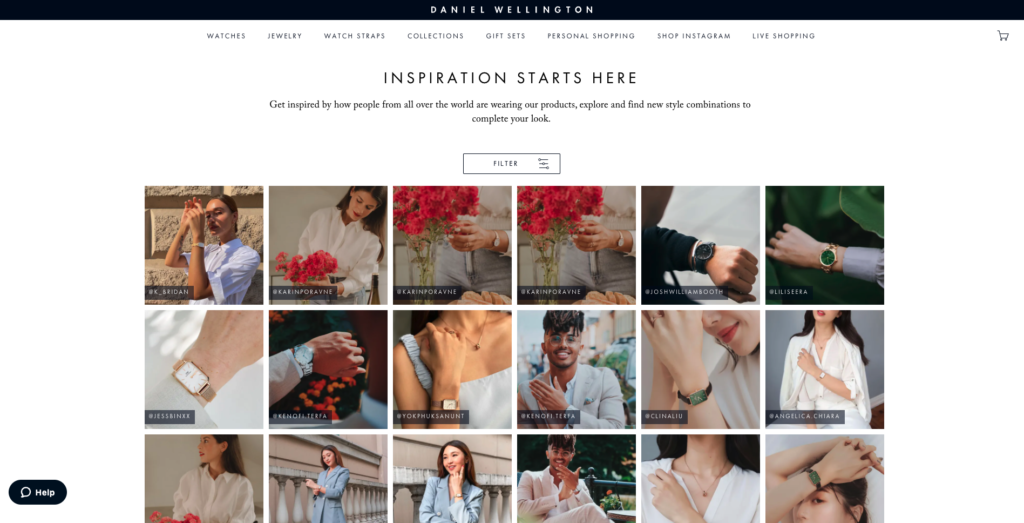
Source: danielwellington.com
That doesn’t sound like your cup of tea? Well, you can simply allow clients to leave photos with their reviews or maybe even embed unboxing videos on your product pages. Whatever you find that works for you is going to be a great choice. And you can rest assured that it’s going to help you secure more conversions than by simply relying on original visuals (no matter how good you are at producing them).
8. The (Seemingly) Small Stuff
Last but not least, if you’re searching for website visuals that hold the promise of boosting sales and capturing leads, you have to remember that it’s not just product photos and header images that define your brand and your offer. In fact, consumers will look at every tiny detail on your site (even if only subconsciously).
That’s why you’ll want to make sure to go through your pages and see whether there are any visual elements they’re missing.
For example, trust signals that show web visitors that your site is secure and that you accept safe payment options can help ease their minds about the authenticity of your business. Take a look at the Forever 21 site for a good example.
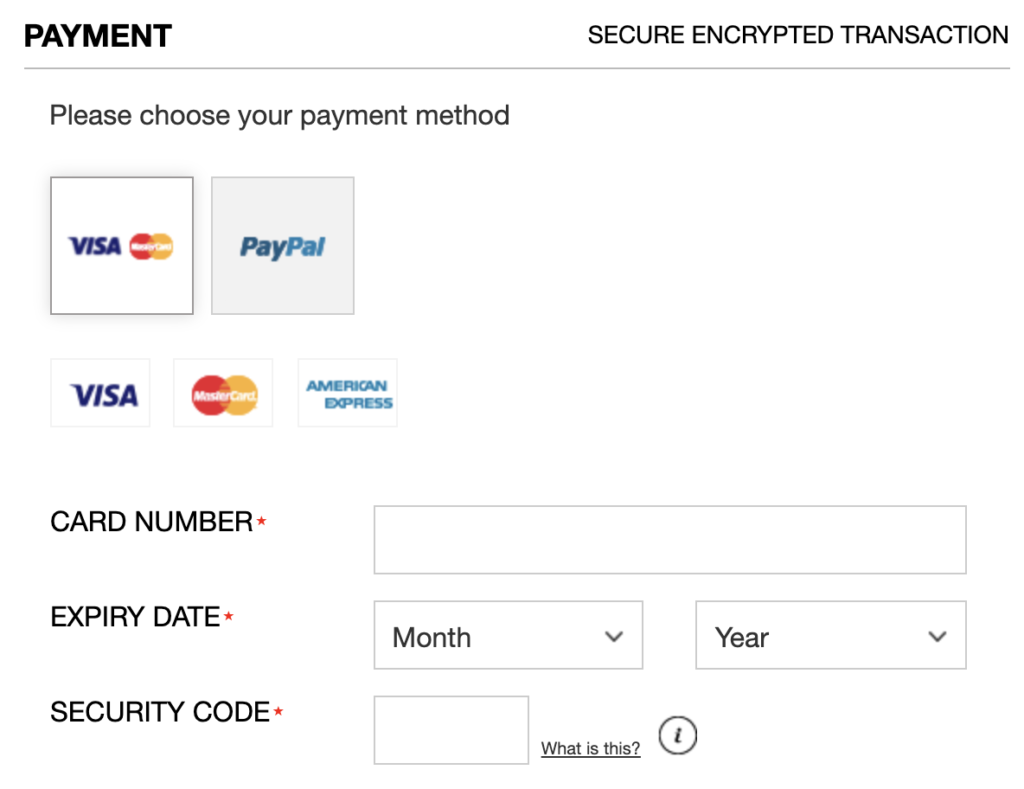
Source: forever21.com
Or, you can highlight high authority partners whose influence you can use to build trust. This is what US Fireplace Store does on its homepage.

Source: usfireplacestore.com
Lastly, don’t forget about your happy customers. The SaaS brand Hopin has a “trusted by leading companies” section on its website where it points out how it caters to brands like Twitch, The Atlantic, and the Jets.
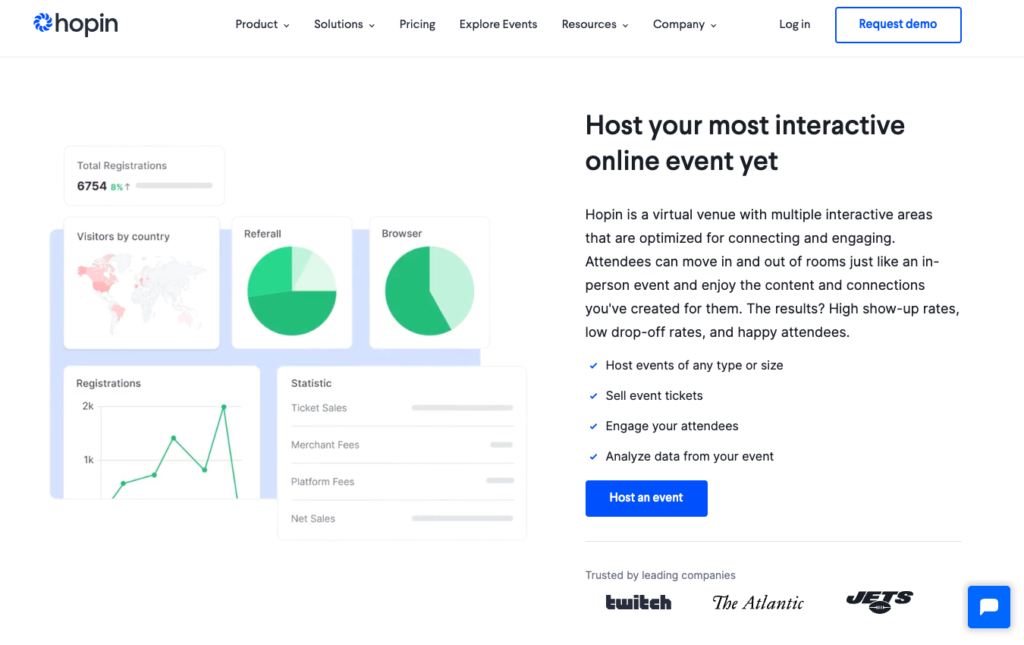
Source: hopin.com
Over to You
As you explore ways to add conversion-driving visuals to your website, look for solutions that will best serve your brand’s goals. Ultimately, the only way to successfully turn web visitors into buyers is to identify the messages and ideas that resonate the best with your target audience.
So don’t be afraid to experiment. Give all of the options mentioned above a try and see which ones work best for your needs.
To ensure that you’re making the right decisions, always remember to look at the data. Whether that means keeping an eye on your website’s analytics or testing your pages is entirely up to you. What matters is that you’re taking the available data into consideration and using it to advance your business, without risking your bottom line on a possibly inaccurate hunch.

